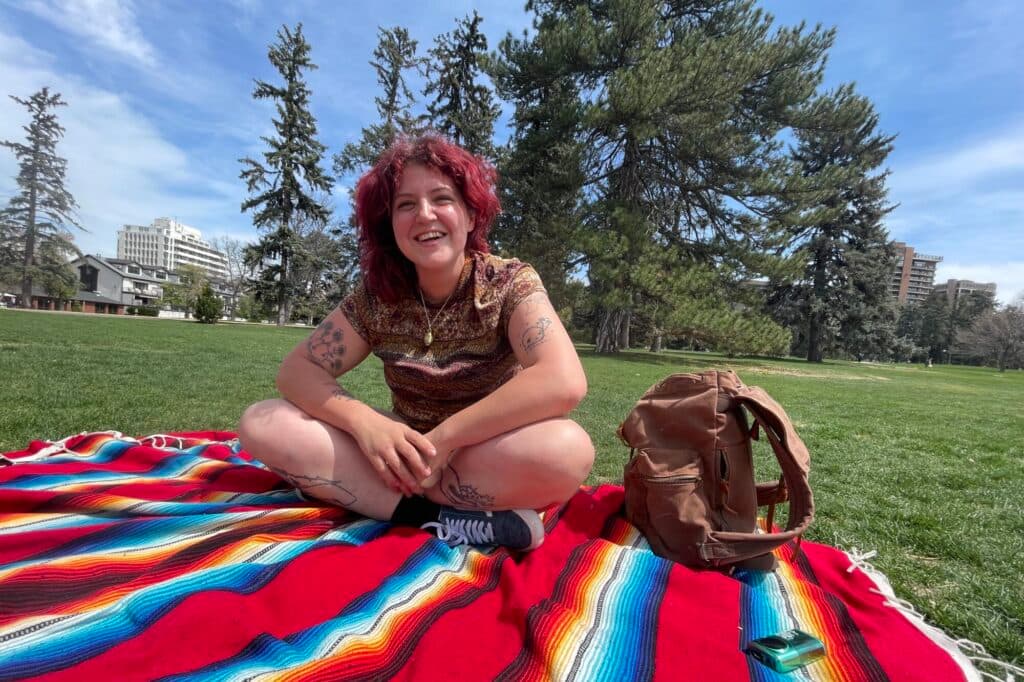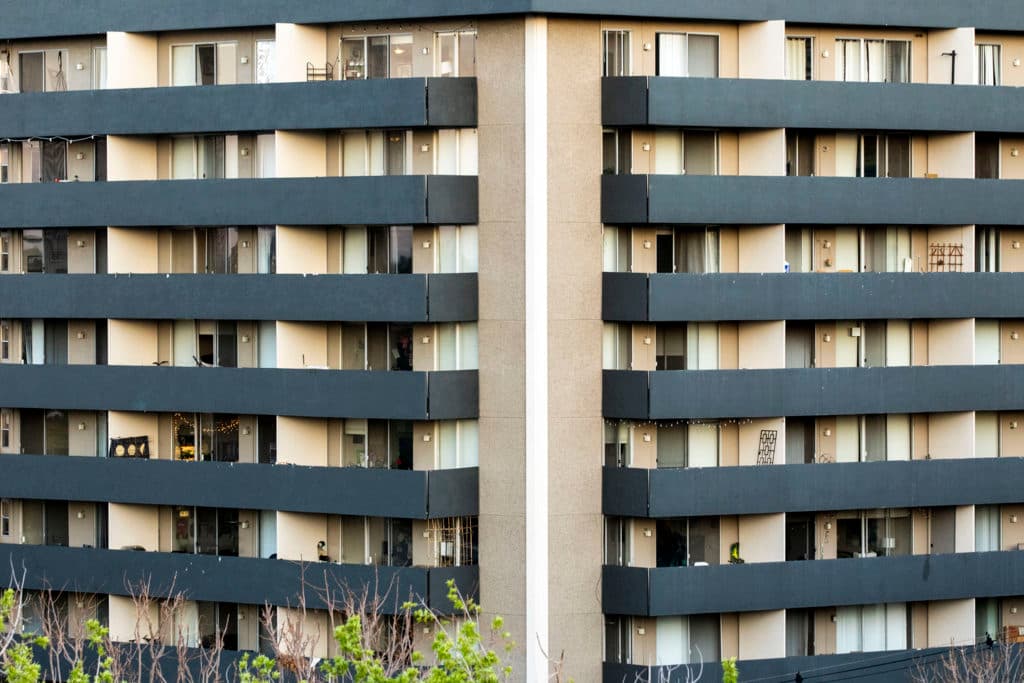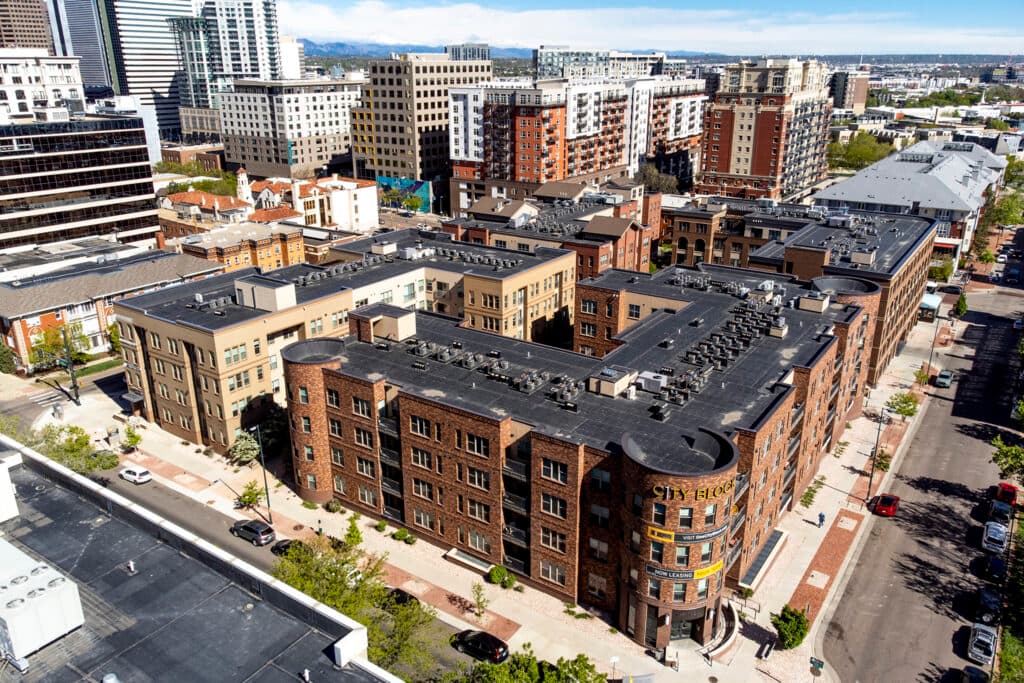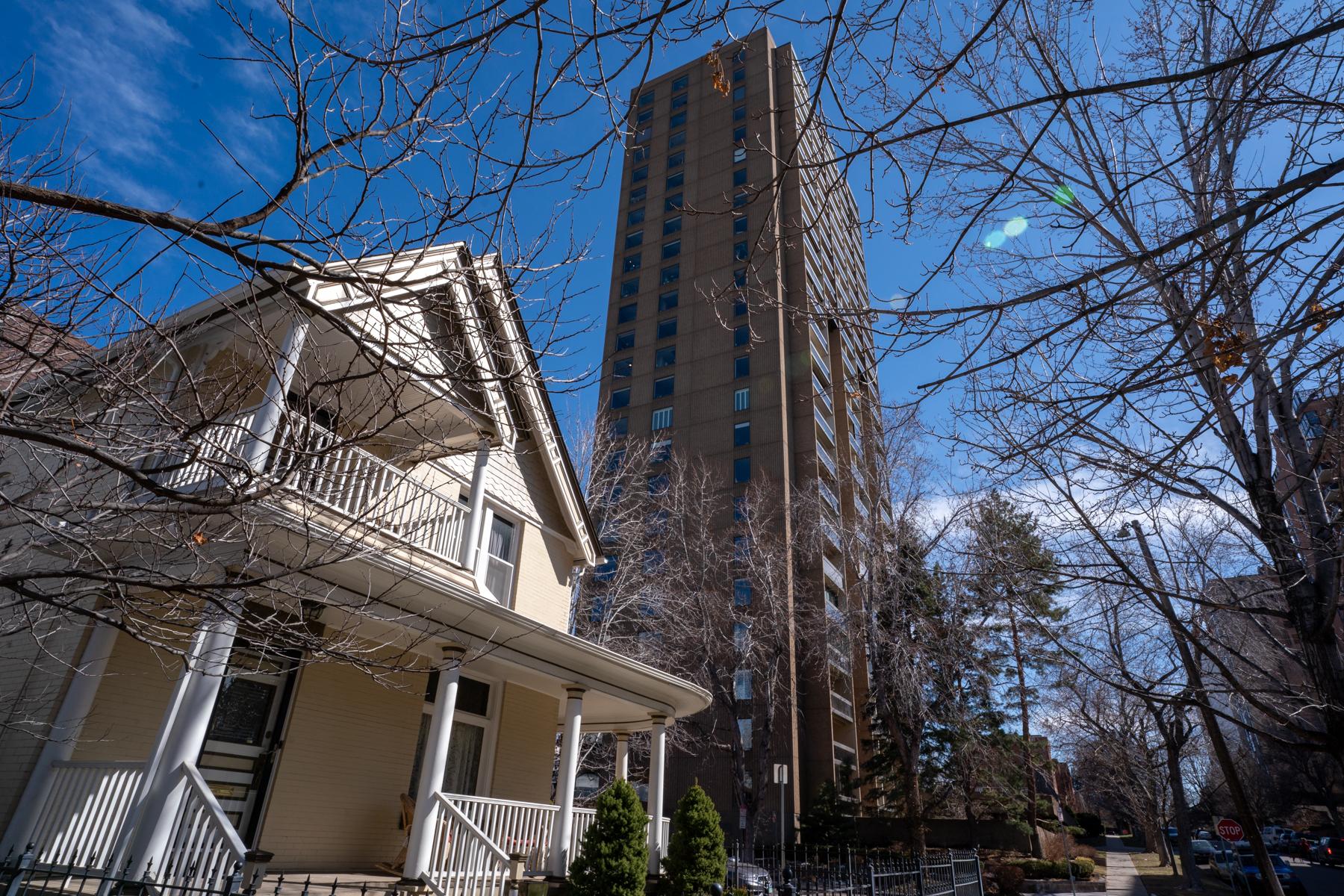When Cassie Welch Rubin moved to Denver in 2022, she paid $1,400 a month for a bug-infested, rundown studio apartment in University Hills, a neighborhood she hated. To get to her job, she took a two-hour bus ride each way.
This year, Rubin left her University Hills studio for a one-bedroom in Capitol Hill. She’s still paying $1,400 – but for a larger place in a central Denver neighborhood.
“I’m really happy with the location,” she said.
Trees line the blocks. She’s close to museums, the botanic gardens and the zoo. She wakes up long before dawn for her 3 a.m. shift as a produce manager at King Soopers. But now she’s a short walk — not a two hour-long bus ride — away from her job.

Like many other renters in Denver, Rubin has found a bit of relief lately. Denver still isn’t affordable, but she’s enjoying a better life for the same price. And it all goes back to a shift in the city’s housing market.
Metrowide rents are falling for the first time in years. A record number of new apartments are hitting the market, and population growth has slowed from a pandemic low. Many renters are still struggling to afford their leases. But many are hunting for better deals — and some are succeeding.
“Now would be the time to take a shot,” RiNo developer Andrew Feinstein said. “I would say that we're in a market where the landlords need the tenants more than the tenants need the landlords.”
How Denver became a little more affordable.
The median apartment in the Denver metro is renting for $1,733, a reduction of $65 a month from the same time last year. That’s a drop of about 3.6 percent.
It’s is the first year since at least 2006 that rents have fallen compared to the year before — a turn in the market, even if it’s a relatively small reduction.
The Apartment Association of Metro Denver, a landlord advocacy group, said the metro had become a “renter’s market.”
The drop in price comes as record numbers of new apartments are opening – more than 20,000 units have been completed around the seven-county metro area in the past 12 months.
Meanwhile, population growth has been slower in the 2020s. The metro’s population has grown at about 1 percent after the pandemic slowdown, compared to highs near 2 percent in 2015.
In short, supply is growing faster than demand. The result: the metro’s apartment vacancy rate has broken 7 percent, with a greater percentage of apartments sitting empty than at any time since 2009. That’s putting pressure on landlords to drop rent and negotiate deals with renters.
But even in this ‘renter’s market,’ the hunt for a good deal is still hard.
Some landlords are dropping rates for people looking to move into vacant units — but keeping them high for current tenants, renters told Denverite. And even those searching for better deals say it’s a slog to find them.
Bartender Toni Mauro just finished a six-month hunt for an apartment, trying to move from a place that cost $2,000. She liked her landlord, but she wanted a better deal so she could save her money and pay her bills.
She has good credit and a clean rental history.

In her hunt for a new place, she spent hundreds of dollars on apartment application fees trying to find a new place.
“Why am I paying $60 to put in my application and doing all my own paperwork?” she asked.
She was appalled by all the fees landlords were adding to leases. Fees for the security guard. Fees for the grounds. Fees for the pool. Fees for parking.
One apartment that was listed at $1,700 became a $2,400 apartment once all the monthly fees hit the bill.
“I literally was eating, sleeping and waking up, searching and searching and searching for places to live,” she said.
At the end of April, she found a duplex to rent in Littleton for $1,500 from a mom-and-pop landlord. She’s moving in early May.
The $500 a month she saves will help her family pay for the basics: fixing a truck and paying the bills.
“We just got really lucky,” she said.
Other landlords are trying to attract tenants by offering concessions like waiving fees or discounted months of rent. Often, their goal is to get renters in the door without cutting their rates too much.
“Developers would rather give away a month for free and get you in at the rental rate that they were hoping to get than reduce the rental rate across the board,” Feinstein said.
Denverites are still struggling with a high cost of living.
Even with the slight drop this year, rents today are still far higher than they were before the pandemic. Monthly costs have increased by about $300 since 2019 and by more than $800 since 2013 — far outpacing increases in income.
More than half of Denver’s renters are cost-burdened, meaning they’re paying over 30 percent of their annual income on housing, according to the Joint Center for Housing Studies at Harvard University. Eviction cases also hit a record high in 2024, another sign that prices are outpacing income.
“It is definitely not a renter’s market,” Mauro said.
Nick Browning, a renter from Colorado, recently had to move in with his mom.
“Everyone wants to come out here,” Browning said. “Everyone wants to go skiing for a few years … and experience the mountain lifestyle. So they come out here and [rent] increases. There's not enough places to live.”
Meanwhile, despite having a better home and a full-time job, Rubin still needs food stamps to get by.

She still can’t afford a car or a trip to the mountains — though she’d like to see what the fuss is about. She can’t afford concerts or eating out. She has a hard time imagining how to pay for school to be a social worker — her ultimate dream.
Most of her money goes to her landlord and bills. While she loves Denver, she also knows she’s missing a lot of the city that other residents enjoy because the cost of living his high.
“You have to work full time and overtime just to afford sleeping, so you don't get to experience the city as much,” she said.
Still, after work, she strolls to Cheesman Park, rests on a blanket and reads novels. Life’s good enough in Denver that she plans to stay.












